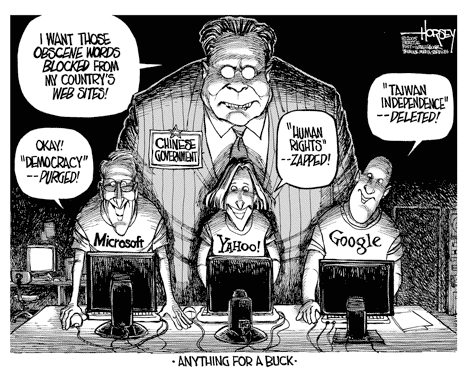“The Washington Post” and “der Standard” have reported today, that chinese hackers have tried to break into tibetan activist organisations networks and computers to steal encryption keys. Encryption keys are used to sign and encrypt electronic messages like E-Mails. China operates the world’s largest and most restrictive “Firewall” to censor internet communication and obscure information. Further it is known that in China a certain hacker group called “Titan Rain”, that is most probably financed and supported by the chinese government has been attacking the Pentagon and the german “chancelor house. Many tibetan organisations and activists notice a higher amount on suspect trojans and viruses. But thanks to the operation of Free Software such as the GNU/Linux operation system and Free Sowftware applications, such as GnuPG for encryption and the Tor Project for anonymous internet, the damage has been kept low.
I urge tibetan activists, journalists and news reporters to use encryption technology to secure and assure internet communication. To bypass the chinese firewall (e.g. to access the internet from Lhasa) it is most advisable to use Tor or similar anonymiser software. (see my blog post from the 18th of march 2008).


It’s a sad fact, that western media often do not reflect and think deeply and deversified enough about oppressions agains cultures and liberation movements. The example the fact that “Che Guevara” has become a “Pop icone” and “fashion paradigm” shows how stupid the outcome of globalised economy influences our society.

The Tibet liberation movement is not an issue, that can be simplified down to “Tibet against China” not “good vs. evil”. The internet communication is one of the few exaples that show, that a cultural globalisation is possible as well. The chinese government oppresses chinese artists, writers and “intellectuals” for years. An official letter of “Chinese Intellectuals” to the chinese government shows how diversified this issue is:
Text of Chinese intellectuals’ letter to Chinese government
“It’s not just YouTube that’s blocked in China. After the unrest in Tibet, at least 25 video sharing sites have been shut down and others have been penalized. While the Chinese government is not admitting that violence in Tibet had anything to do with it, they do have a sudden interest in strictly enforcing licensing restrictions that require video sharing websites to register with the government. Among other things, Chinese video sharing sites must promise not to show videos that inspire fear, contain pornography, or endanger national security.”
read on Slashdot.org



